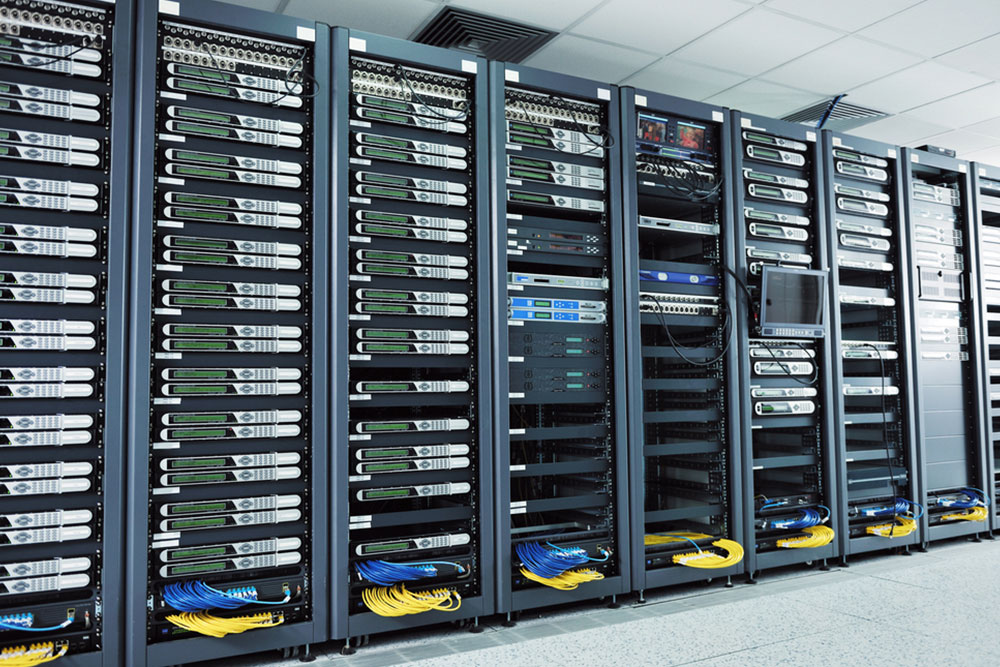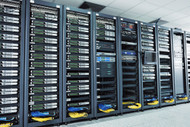Posted by Aventis Systems on Nov 11th 2025

The digital engine of any growing business is its server infrastructure. Choosing the right hardware is a fundamental decision that affects performance, scalability, and long-term operating costs.
A common point of confusion for IT professionals is determining the best fit between a tower server vs. rack server. Both form factors have distinct benefits and drawbacks. But how do you decide between them?
Understanding the key differences and benefits of each can help you determine which server is the best fit for your business needs. Aventis Systems, Inc. helps businesses navigate these choices with tailored IT solutions that match specific needs and growth goals.
In this article, we will learn the difference between rack and tower servers, examining their individual strengths and weaknesses to guide you in making an informed decision.
What Is a Tower Server?
A tower server is designed to function as a standalone unit, often resembling a desktop computer in its vertical form. These servers are typically used by small businesses or in situations where space is not a factor.
Tower servers excel in simplicity and ease of use. They are easy to set up without requiring specialized racks or additional infrastructure.
These servers are often chosen by businesses that need a straightforward solution without too much complexity. The standalone design allows for easy upgrades and maintenance, as there are no other interconnected units to manage. Additionally, these servers are relatively quiet, making them ideal for environments that prioritize minimal noise disturbance, such as small office spaces.
However, while tower servers are cost-effective and require minimal space for deployment, their scalability is limited. As your business grows, the need for more servers might result in a cluttered workspace, which can limit efficiency and operational flexibility.
What Is a Rack Server?
Rack servers, in contrast, are compact, horizontally-oriented units designed to be mounted in server racks. Unlike tower servers, which are independent, rack servers are part of a larger system of servers that work together in an organized, centralized location. These servers are built for high-density environments, such as data centers or large-scale enterprise operations, where maximizing floor space is essential.
Rack servers shine in scalability and efficiency. Multiple servers can be stacked in a single rack, allowing businesses to easily scale up their infrastructure without taking up much more physical space. They are ideal for businesses that anticipate rapid growth or need to handle large amounts of data across multiple locations.
In addition to space efficiency, rack servers are often better equipped to handle more demanding tasks. They are designed to integrate seamlessly with advanced cooling and power management systems, making them a go-to choice for companies with higher performance requirements.
Comparing Tower and Rack Servers: Core Differences
The difference between rack and tower server boils down to a few key aspects that directly impact your business's needs and future plans.
Space Efficiency and Scalability
One of the most significant differences lies in how the servers are deployed. Tower servers, being standalone, require more space per unit. This means that as your business expands and you need to add more servers, you could quickly run out of room.
Rack servers, however, are designed to be stacked and mounted in a server rack, maximizing vertical space. This allows businesses to grow their infrastructure without taking up unnecessary floor space.
Cooling and Maintenance
Cooling is another area where rack servers have a clear advantage. The organized structure of a server rack promotes better airflow and cooling for multiple units. This is highly beneficial in high-density environments where many servers are stacked together.
On the other hand, tower servers rely on their individual cooling systems, which might not be as efficient in larger setups. As the system grows, cooling efficiency can become an issue, especially for businesses looking to scale rapidly.
Performance and Use Cases
While both server types can perform similar functions, rack servers tend to be better suited for handling larger workloads. Their design allows for better performance optimization and easier integration into high-performance IT environments. Tower servers are generally used by smaller businesses with fewer IT demands, whereas rack servers are ideal for data centers, cloud providers, or large enterprises.
Cost Considerations
Cost is a pivotal factor in deciding between tower and rack servers. Tower servers are typically less expensive upfront since they do not require additional equipment like server racks or advanced cooling systems. However, as you expand and add more tower servers, the cost of managing physical space and hardware can add up quickly.
Rack servers are more expensive initially due to the need for racks and extra cooling equipment. However, they offer better long-term value for businesses aiming for scalability and efficiency.
Advantages of Tower Servers
Tower servers offer several advantages, particularly for businesses with limited IT infrastructure. The simplicity of a tower server is one of its key benefits. The fact that they do not require additional racks or specialized equipment makes setup straightforward and their maintenance is easy to manage.
For small-scale businesses or offices just starting their IT journey, tower servers can be a highly cost-effective choice. The upfront costs are lower, and you can scale up gradually as needed. Additionally, tower servers tend to be quieter than their rack counterparts, which can be beneficial for office environments where noise levels are a concern.
Advantages of Rack Servers
Rack servers are designed for scalability, efficiency, and high performance. If your business is growing or needs to handle larger data workloads, rack servers offer significant advantages. With the ability to scale by stacking additional units, rack servers provide a more compact, space-saving solution for expanding infrastructure.
These servers are also better equipped for cooling and power management, which matters in high-demand IT environments. The centralized management of rack servers allows IT professionals to monitor and maintain all units from a single location, streamlining operations.
For businesses with long-term growth goals, rack servers offer better long-term value. Although the initial setup is more expensive, rack servers are the right choice for businesses that need to expand quickly without compromising on performance or space.
Factors to Consider Before Choosing Between Tower and Rack Servers
When making the decision between a tower server and a rack server, you need to consider several factors that will influence your choice.
- Space Availability: If your business has limited space and is growing rapidly, rack servers might be the best choice. They maximize vertical space, allowing for more servers within a compact area. Tower servers require more floor space and are better suited to environments with limited scaling needs.
- Scalability Needs: If you expect to expand your IT infrastructure significantly, rack servers are the better option. They allow for easy scaling by adding more servers to the rack as needed. Tower servers, while easy to manage initially, can become inefficient as your business grows and more servers are added.
- Cost and Budget: Evaluate your current and future budget for server infrastructure. Tower servers may seem more affordable at first glance, but their limitations in scalability and space could lead to higher costs down the road. Rack servers require more upfront investment but provide better value for growing businesses by offering flexibility and long-term scalability.
Which Server is Right for You?
Choosing the right server for your business depends on various factors, such as space, scalability, performance needs, and budget. Understanding the rack and tower server difference is the key to selecting the optimal solution.
For small businesses with limited IT needs, a tower server is an affordable and straightforward solution. However, for growing companies with increasing data demands, rack servers offer the scalability and efficiency that can support long-term growth.
Aventis Systems, Inc. helps businesses find the perfect server products and a wide range of IT solutions for their unique requirements. If you’re unsure which server is right for you, call an IT pro now. We’re here to guide you through the process and ensure you make the best choice for your business.

